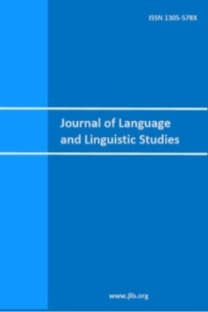Sexism in Language: Do Fiction Writers Assign Agentive and Patient Roles Equally to Male and Female Characters?
Öz
Problem Statement: Studies have shown that language is used discriminatorily to women and men. Hence, there have been movements against gender biased language-the movements which are reported so successful especially in the West.Purpose of Study: This paper however argues that discrimination stems from speakers’ minds; and hence performing gender neutral language alone does not confirm gender neutrality of the performer. The reliable way of judging gender neutrality would then be studying the speakers’ minds.Method: The study applied psychoanalytic literary criticism as a gateway to the unconscious minds of American authors–to find out how gender neutral they were at cognitive level. Through psychoanalytic literary criticism, authors’ suppressed desires would find their way out onto their works in a distorted form. Along these lines, the study assessed the equality in assigning agentive and patient semantic roles between males and females in American fictions–to find out who between males and females were frequently assigned agentive and patient roles of the reciprocal verbs: kiss, hug, marry, and divorce.Findings: The study found out that males were assigned more agentive roles in kiss and hug, and females in divorce. Moreover, both were assigned almost equal roles in marry.Conclusion: The implication of the findings is that speakers’ unconscious mind is basically gender biased along gender stereotypes.
- ISSN: 1305-578X
- Yayın Aralığı: Yılda 4 Sayı
- Yayıncı: Hacettepe Üniversitesi
Sayıdaki Diğer Makaleler
EFL Learners' Use of ICT for Self-Regulated Learning
Serkan Çelik, Erkan Arkın, Derya Sabriler
A Model of Instruction for Anxiety and Success in ELT
Foreign Language Teachers’ Attitude toward Authentic Assessment in Language
A Study of Needs Analysis at Turkish Gendarmerie in Terms of English for Specific Purposes
Investigating the Written Assessment Practices of Turkish Teachers of English at Primary Education
Enhancing the Italian Learners' Comprehension Competence in Turkish Proverbs and Idioms
